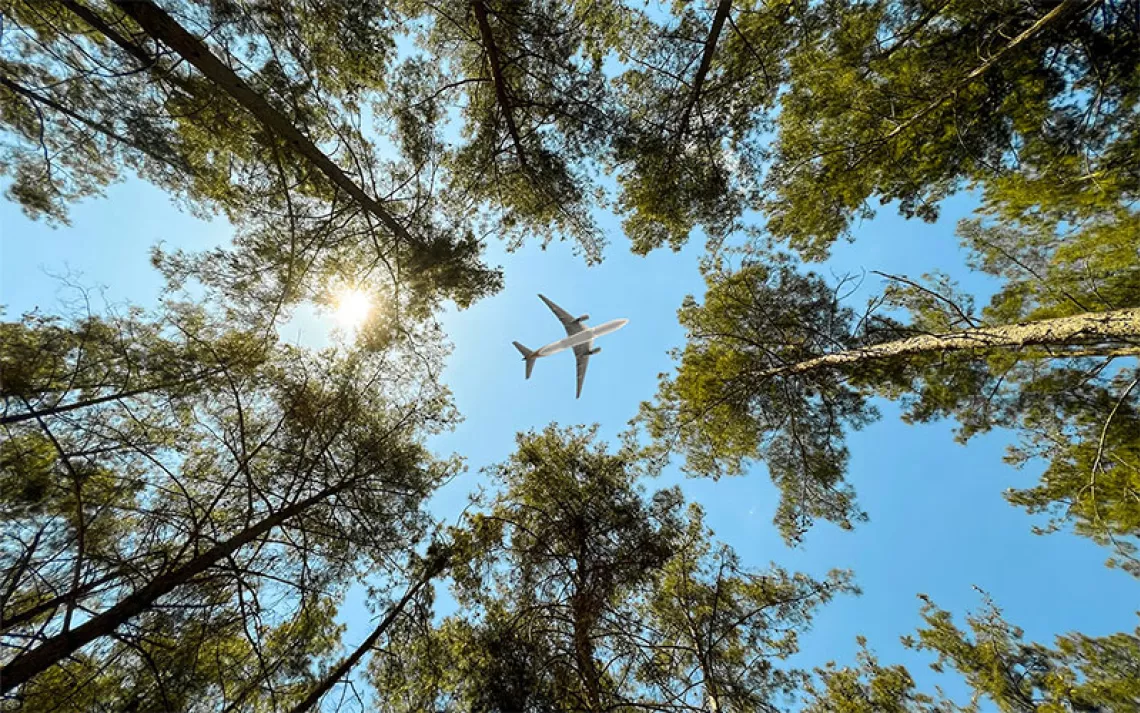4 Crowdsourcing Apps for the Outdoors

Technology and nature are syncing better than ever. With these four apps, smartphone users can make the most of their outdoor experience and share it with others. Each uses crowdsourced data (that is, data collected from casual users) to create a collaborative, dynamic view of the world around us. The best part? All these apps are free.
iNaturalist
By iNaturalist, LCC | iTunes | Android
Ever wonder what the orange flower is that you see on your daily walk? Wonder no longer. With the easy-to-use iNaturalist, snap a photo of any plant or animal, upload it, and mark where you saw it on the map. Your observations about unidentified species show up to other users as a question mark enclosed in white. The iNaturalist community (about 40,000 strong) keeps an eye out for white markers and notifies the uploader of the species, usually within a few hours of posting. Scientists often turn to biodiversity data collected by iNaturalist to learn more about endangered or extinct species, how climate change is affecting local populations, and what kind of invasives are taking over, and where. Co-founder Ken-ichi Ueda knows that while scientific research is great, it's not the ultimate purpose of the app. "It’s about having fun with your friends outside,” he explains. “The whole point of what we do is to get people outside and appreciate nature.”
Merlin Bird ID
By Cornell University | iTunes
Merlin Bird ID (named after the wizard because of its near-magical ability to name bird species) is for the inexperienced bird watcher who wants to learn more about the avian world. Users simply pick physical characteristics from a list (size, color, primary activity) and choose from a range of birds that match the description. You can swipe through photos and even listen to sample bird calls. Merlin pulls its information from eBird, an online, crowd-sourced data set for birdwatchers. Developer David Bell explained that the benefits of Merlin are twofold: by using data from eBird, users get a very specific set of traits to choose from, and the app gets better the more you use it. If users keep choosing American Finches in a certain region, that species moves up higher in the predictive algorithm, making the app more precise for future users.
Weendy
By milkybay LCC | iTunes
When you’re an expert at an outdoor sport, you know your way around a weather app. But what happens when the forecast is wrong, and your day depended on it? Enter Weendy, the weather app that uses crowd-sourced information to give kite boarders, windsurfers, hang gliders, skiers, and other extreme sports enthusiasts accurate, timely forecasts. The main interface is an Instagram-like live stream of photos. The pictures give you an idea of what the conditions look like, and comments from uploaders let you know what the temperature and winds are like at that exact moment. More subjective recordings like “choppy water” and “crowded beach” can also be recorded on Weendy, which further personalizes the app to suit your sport’s needs. Never let the vague "Partly Cloudy" forecast stump you again. Katerina Stroponiati, co-founder of Weendy, wants the app to be as specific as possible: “Weather should have context based on your intentions, interests and social profile.” By using existing, close-knit communities like kite boarders, the social media experience becomes even more personal — and useful.
Stereopublic
By Freerange Future | iTunes
The best part about moving to a new city is finding “your spot.” The spot where you sneak away to lunch, where you bring your coffee date to show off how well you know the city, the spot where you can, most of all, get away from the urban noise. Stereopublic is the app for that. Stereopublic users make a note of their quiet spaces on a map, and those spots appear as stylized ink splotches on a city map for all to see. People that submit a quiet space can also record the sounds of that area, letting users know what they’ll hear in that spot. Audio files are saved to the app as part of a playlist, so you can revisit quiet noises in the future. Why would you want other people to know about your special spot? Developer Jason Sweeney says in an email interview that the app aims to bring introverts together, in a “quiet-seeking community.” Even if they never meet face-to-face, users know “You are not alone in your desire to seek out quiet space.”
 The Magazine of The Sierra Club
The Magazine of The Sierra Club







